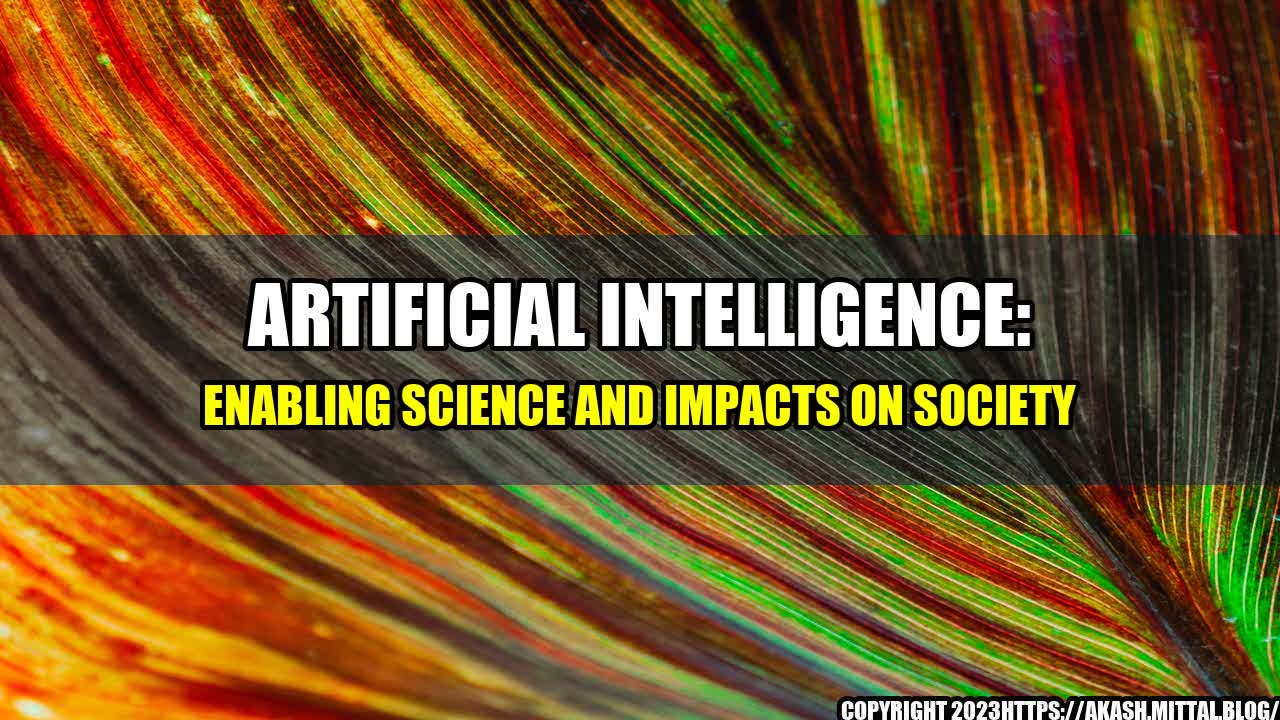
Emily was a researcher, working on a project that could potentially cure cancer. She had been working on it for years, but progress had been slow. That was until she discovered the power of artificial intelligence (AI). With AI assist, her team was able to analyze large amounts of data in a matter of weeks, something that would have taken them months to do on their own. The insights gained from this analysis led to the development of a new drug that, within just a few years, could be used to treat thousands of cancer patients.
Emily's story is just one example of how AI is transforming the field of science. By automating tasks that were once too complex for humans to handle and gathering insights from datasets that were too large for individuals to manage, AI is changing the way research is done. But AI is not only changing science - it's also affecting society as a whole.
AI Impacts on Society
AI is already playing a significant role in many aspects of our lives. It's being used to improve healthcare, change the way we work, and even the way we interact with each other. But with this transformation comes great responsibility. The societal implications of AI are vast and far-reaching. Here are just a few ways AI is changing our society:
1. Employment
With the rise of AI technologies, many jobs are being automated. This can be beneficial for businesses, but it also means that people will need to be trained for new jobs. However, not everyone will have the skills or education needed to access these new job opportunities, leading to unemployment and income inequality. On the other hand, AI could also create new jobs and industries that we haven't even thought of yet.
2. Privacy and Security
AI relies on data to function, which means that there is a lot of personal information being collected and analyzed. This creates privacy concerns, as people may not want their personal data used in this way. There are also security risks associated with the use of AI, as hackers could gain access to these large datasets and use them for malicious purposes.
3. Bias and Discrimination
AI is only as impartial as the data it's fed. If data contains biases, then the AI will also be biased. This could lead to discrimination against certain groups of people, whether it's in the hiring process or the allocation of resources. It's essential that we develop AI systems that are free from bias to ensure fairness and equal opportunities for all.
AI Enabling Science
While there are certainly potential risks associated with AI, the benefits it brings to the field of science cannot be ignored. Here are some examples of how AI is enabling scientific breakthroughs:
1. Drug Discovery
As Emily discovered, AI is revolutionizing drug discovery. By analyzing large datasets of biological and chemical information, AI is able to identify potential drug candidates more quickly and accurately than ever before. This means that new drugs can be developed faster and at a lower cost, potentially saving lives and improving the quality of life for millions of people.
2. Weather Forecasting
AI is also being used to improve weather forecasting. By analyzing vast amounts of data from weather sensors, satellites, and other sources, AI can create more accurate weather models. This is particularly important for predicting extreme weather events, which can be devastating if not properly prepared for.
3. Astronomy
AI is also playing a crucial role in the field of astronomy. With large amounts of data being generated by telescopes and other instruments, AI is being used to analyze this data and make discoveries that would be impossible for humans to do on their own. For example, AI has helped identify new exoplanets and even contributed to the detection of gravitational waves.
Conclusion
In conclusion, AI is transforming both science and society. While there are certainly potential risks associated with AI, the benefits it brings to the field of science are truly remarkable. The examples above are just a few of the many ways AI is changing our world. It is essential that we develop AI systems that are ethical, unbiased, and transparent, to ensure that everyone can reap the benefits of this technology.
References:
1. "How artificial intelligence is changing science" - Nature
2. "The societal implications of artificial intelligence" - McKinsey & Company
3. "7 ways artificial intelligence is changing our world" - World Economic Forum
Hashtags: #ArtificialIntelligence #AI #Science #Society #Employment #Privacy #Security #Bias #Discovery #Weather #Astronomy
SEO Keywords: Artificial Intelligence, AI, Society, Science, Discovery, Weather, Astronomy, Employment, Privacy, Security, Bias
Article Category: Science and Technology
Curated by Team Akash.Mittal.Blog
Share on Twitter Share on LinkedIn